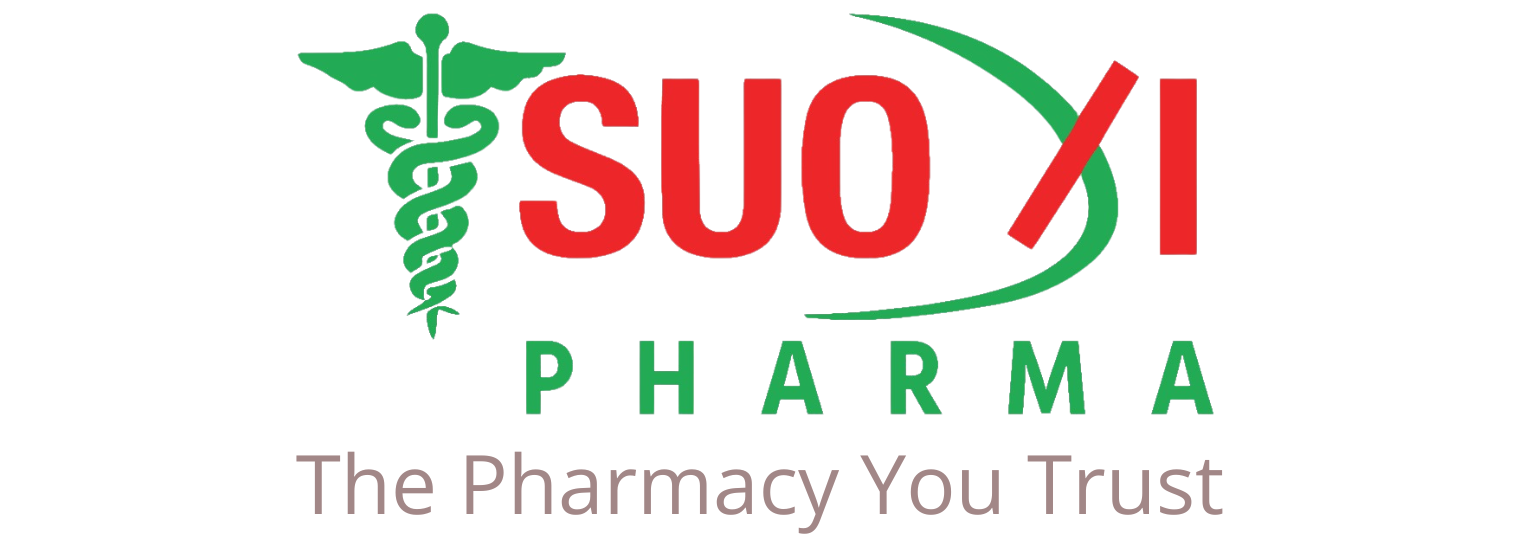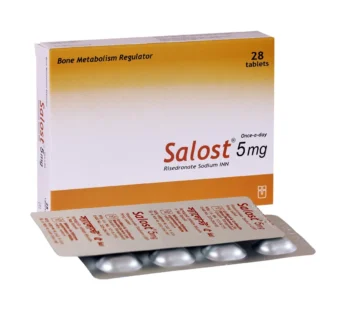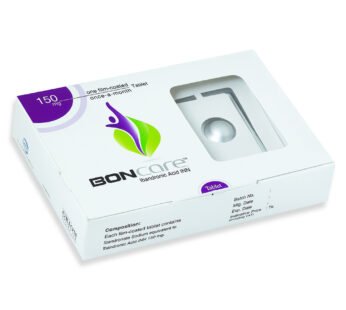Acidron 4 mg vial
Description
Indications
Acidron is prescribed for:
- Managing hypercalcemia associated with malignancies.
- Treating bone metastases in patients with solid tumors.
- Addressing osteolytic lesions in individuals with multiple myeloma.
- Preventing and managing corticosteroid-induced osteoporosis.
- Enhancing bone mass in men diagnosed with osteoporosis.
- Managing osteoporosis in postmenopausal women.
- Treating Paget’s disease of the bone.
- Preventing osteoporosis in postmenopausal women.
Use only as directed by a registered physician.
Pharmacology
Zoledronic acid belongs to the nitrogen-containing bisphosphonate class and specifically targets bone. It acts as a potent inhibitor of osteoclast-mediated bone resorption due to its strong affinity for mineralized bone. Once administered intravenously, Zoledronic acid is rapidly absorbed by the bone tissue.
Its primary molecular target is the enzyme farnesyl pyrophosphate synthase, though additional mechanisms may contribute to its efficacy. Clinical studies on tumor-induced hypercalcemia have demonstrated significant reductions in serum calcium levels and urinary calcium excretion following treatment.
Beyond inhibiting bone resorption, Zoledronic acid also exhibits:
- Anti-tumor effects
- Anti-angiogenic properties
- Pain-relieving activity
- Cytostatic and pro-apoptotic effects on tumor cells
- Synergistic cytostatic action with certain anti-cancer drugs
Zoledronic acid does not accumulate in the plasma after multiple doses given every 28 days and is excreted unchanged through the kidneys.
Dosage & Administration
Hypercalcemia of Malignancy
- Recommended Dose: 4 mg, administered as a single-dose intravenous infusion.
- Renal Impairment Considerations: No dose adjustment is required for mild-to-moderate renal impairment.
- Re-Treatment: If calcium levels remain high after initial treatment, a second dose may be administered after a minimum interval of 7 days.
Multiple Myeloma & Bone Metastases from Solid Tumors
- Recommended Dose: 4 mg, infused every 3–4 weeks.
- Supplementation: Patients should take 500 mg of calcium and 400 IU of Vitamin D daily.
Use only as directed by a registered physician.
Administration Instructions
- Before use, dilute the required dose from a single vial with 100 ml of a calcium-free infusion solution (either 0.9% sodium chloride or 5% glucose solution).
- The infusion should last no less than 15 minutes.
- Once prepared, use the solution as soon as possible. If storage is necessary, refrigerate between 2-8°C for no more than 24 hours.
- If refrigerated, bring the solution to room temperature before administration.
- Avoid mixing Zoledronic Acid with calcium-containing or divalent cation-containing solutions, such as Lactated Ringer’s solution.
- Administer as a single intravenous solution, separate from other medications.
Use only as directed by a registered physician.
Drug Interactions
Acidron has been used alongside anticancer agents, diuretics, antibiotics, and analgesics without significant interactions. However, caution is necessary in the following cases:
- Aminoglycosides: May cause an additive effect leading to prolonged hypocalcemia.
- Thalidomide (in multiple myeloma patients): May increase the risk of kidney dysfunction.
- Loop diuretics: When used concurrently, may heighten the risk of hypocalcemia.
- Nephrotoxic drugs: Require careful monitoring due to potential renal toxicity.
Contraindications
Do not use Acidron if the patient has:
- A known allergy to Zoledronic acid, bisphosphonates, or any excipients.
- Severe kidney impairment (Creatinine clearance <30 ml/min).
- Pregnancy or is breastfeeding.
Possible Side Effects
- Common: Headache, nausea, fatigue, bone pain, fever, flu-like symptoms, anorexia, constipation, vomiting, muscle and joint pain, hypocalcemia, hypophosphatemia, and anemia.
- Severe (seek medical attention if experienced): Osteonecrosis of the jaw, severe renal impairment, and prolonged hypocalcemia.
Pregnancy & Breastfeeding
- Zoledronic acid is not recommended during pregnancy or for breastfeeding women.
- Not advised for children and adolescents under 18 years of age.
Precautions & Warnings
- Hydration: Patients must drink at least two glasses of fluid before and after infusion, particularly elderly individuals and those on diuretics.
- Monitoring: Regularly check serum calcium, phosphate, magnesium, potassium, and creatinine levels after starting Acidron therapy.
- If hypocalcemia, hypophosphatemia, or hypomagnesemia occurs, short-term supplementation may be required.
- Renal function should be monitored carefully during treatment.
Special Considerations for Patients with Renal Impairment
- Not recommended for severe renal impairment (Creatinine clearance <30 ml/min).
- Dose adjustments based on creatinine clearance:
- CrCl > 60 ml/min: 4 mg (5 ml)
- CrCl 50-60 ml/min: 3.5 mg (4.4 ml)
- CrCl 40-49 ml/min: 3.3 mg (4.1 ml)
- CrCl 30-39 ml/min: 3 mg (3.8 ml)
Overdose Management
- Overdose cases are rare but may lead to hypocalcemia, hypophosphatemia, and hypomagnesemia.
- Treatment includes intravenous administration of calcium gluconate, potassium or sodium phosphate, and magnesium sulfate.
Therapeutic Class
Bisphosphonate Medications
Reconstitution
- Dilution Requirement: Mix the appropriate dose with 100 ml of 0.9% NaCl or 5% dextrose solution before infusion.
Storage Guidelines
- Store below 30°C before opening.
- Protect from moisture and light.
- Keep out of reach of children.
Additional information
| Weight | 0.15 g |
|---|








Reviews
There are no reviews yet.